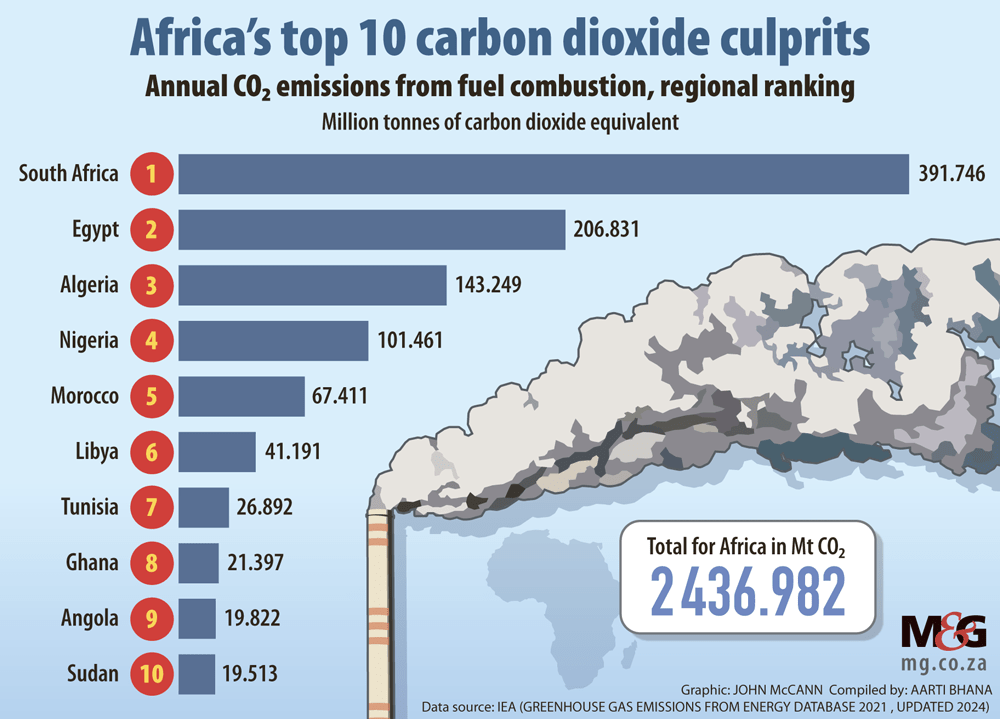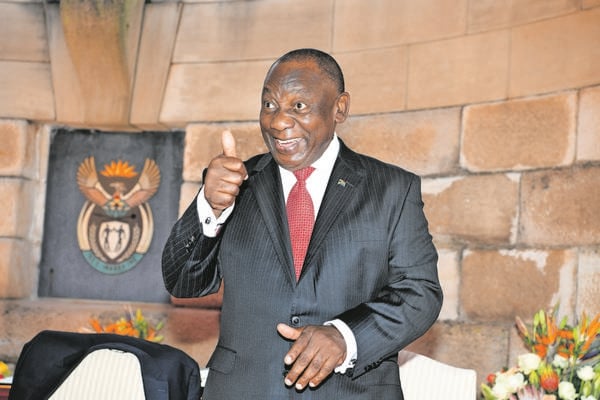
President Cyril Ramaphosa signed the Climate Change Bill into law last month.
TExperts say the climate change bill he recently signed is a progressive step not just for South Africa but for the entire African continent.
President Cyril Ramaphosa signed the bill into law in July, after nearly a decade of discussion and seven years after the publication of the first draft. The bill aims to chart a path for South Africa to address the climate crisis, aligning policy measures and ensuring that all institutions of state take the steps necessary to address the impacts of climate change.
Kulsoom Omari Motsumi, a member of the African Group of Negotiators, said the new law was a positive step as not many other African countries have laws addressing climate change.
“I think South Africa is taking the lead on this, and I think some other countries are doing it too, but it's at least quite progressive and something South Africa should be commended for,” Omari Motsumi said. Mail & Guardian On the sidelines of a training workshop for journalists in Kenya last week.
The new law addresses, among other things, South Africa’s capacity and capability to reduce greenhouse gas emissions and build climate resilience in the long term, while minimising the risk of unemployment and promoting new employment opportunities.
South Africa's heavy reliance on coal as an energy source makes it one of the world's top 15 greenhouse gas emitters, according to the United States Agency for International Development.

The new law includes provisions for local departments and municipalities to take action.
“Working with local governments on climate change, or at least some degree of decentralized engagement, is a lesson that many African countries can learn from,” Omari Motsumi said.
South Africa is also playing an active role in leading negotiations on climate policy, using its position to lead the dialogue for the African continent, which is set to be significantly harder hit by the climate crisis than other parts of the world, she added.
“South Africa is working very hard to ensure that we have one voice as Africa,” she said. “Even when we look at access to climate finance, [South Africa] It was also one of the first countries to be accredited and access funding from the Green Climate Fund.”
Mohamed Adau, director of climate change think tank Power Shift Africa, said South Africa's ability to recover from the devastating floods in KwaZulu-Natal was a testament to the country's adaptability.
“In terms of climate impacts, think back to the Durban floods last year. [South Africa] “We are being affected just like any other African country. The only difference is that we have a greater capacity to adapt than most sub-Saharan African countries and may actually recover much faster,” he said.
But ultimately, he added, countries on the continent face a similar fate to varying degrees because of the failure of rich Western nations to take responsibility for the climate impacts of their actions.
“The climate problem has been caused in large part by a wealthy few who have funded development and allowed the world to continue to pollute without bearing the costs,” Addo said.
South Africa ranked 92nd out of 181 countries in the 2020 University of Notre Dame index, which looks at countries' climate vulnerability and adaptive capacity, according to a World Bank report.
“South Africa is highly vulnerable to climate change and climatic variations due to its high reliance on rain-fed agriculture and natural resources, high levels of poverty, especially in rural areas, and low adaptive capacity,” the report said.
In other African countries, including Malawi, Zimbabwe, Botswana and Zambia, drought has destroyed crops and threatened food security.
Addo said: “Whether it's drought, floods or locust infestations, some of the impacts our communities face are the same across the continent and South Africa, like other African countries, is on the frontline of climate threats.”
Omari Motsumi said securing more funding for adaptation will be on Africa's agenda at the 29th Conference of the Parties to the United Nations Framework Convention on Climate Change (COP29) scheduled for November 2024.
“We as Africa are really pushing for adaptation planning to ensure that we increase funding for adaptation. And secondly, we need to think about adaptation as a global issue,” she said.
But Africa must also rely on its own resources to drive its own solutions, Addo said, including harnessing abundant renewable energy sources across the continent, using available arable land to meet food needs, and promoting green industrialization, including environmentally friendly technologies, to achieve climate targets.
“What we need, therefore, is an Africa-wide industrial policy that will enable us to aggregate the resources available on the continent, add value to the continent's products to serve African needs and sell the surplus,” he said.
The reporter’s attendance at the workshop in Kenya was supported by Power Shift Africa.

